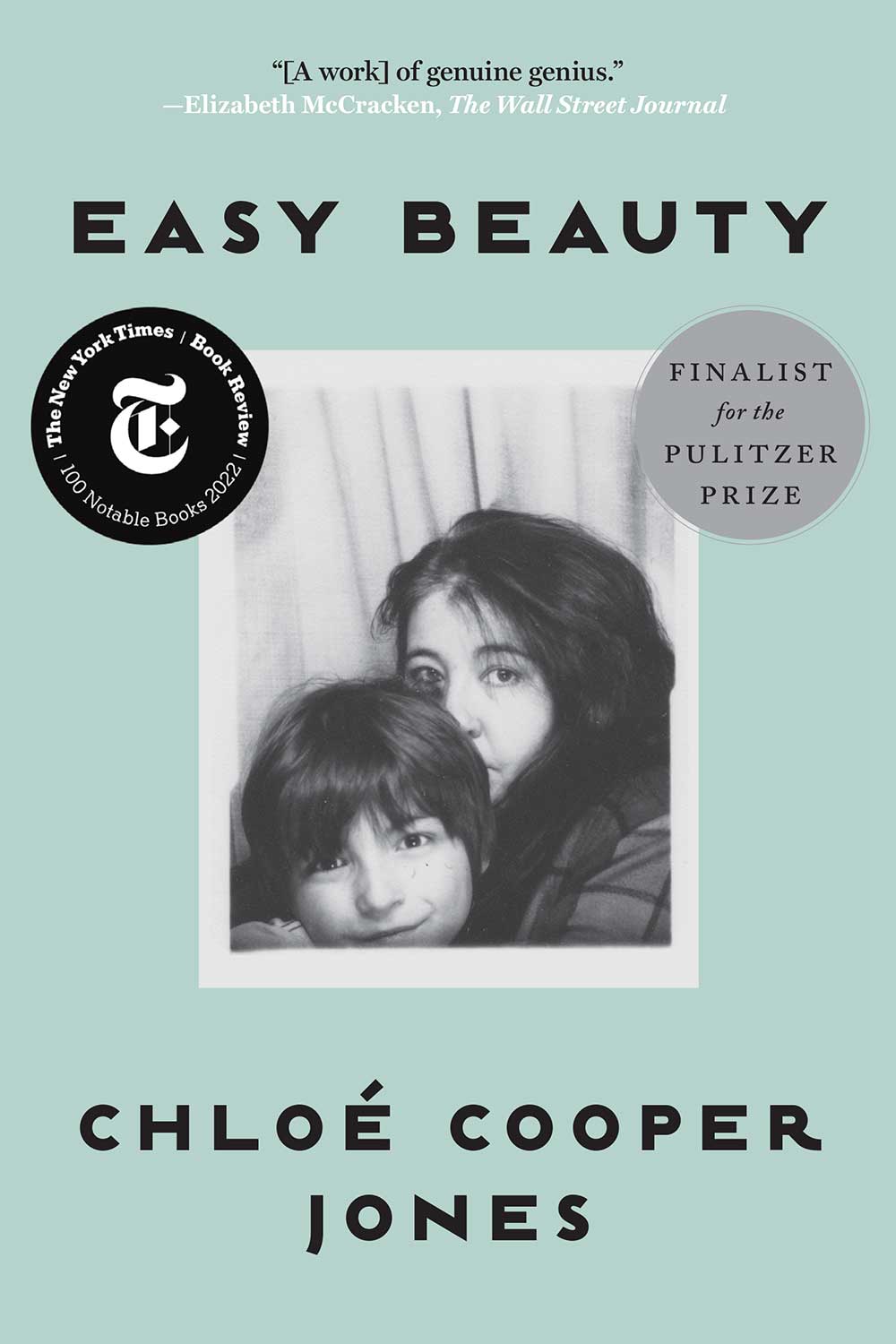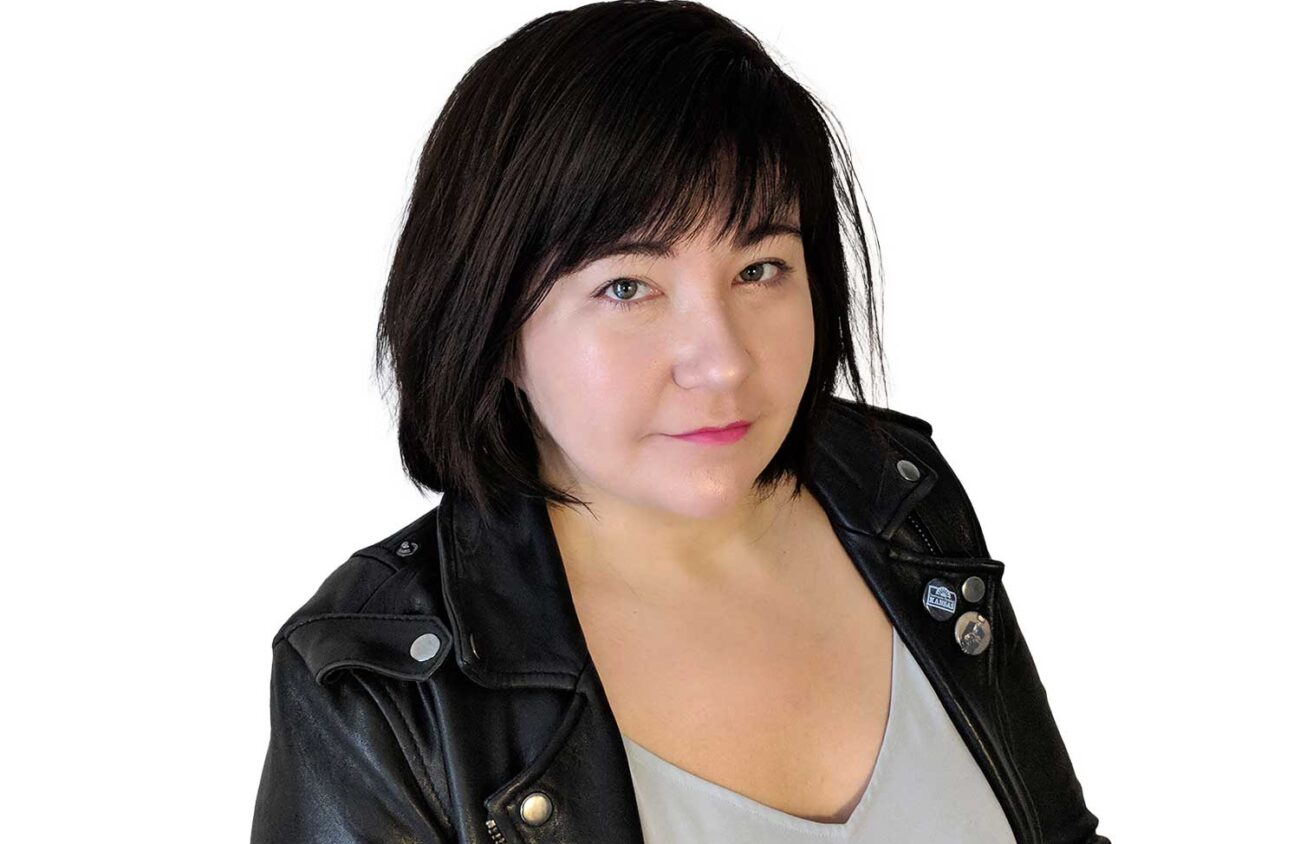Chloé Cooper Jones’ memoir Easy Beauty is a hit with critics and audiences alike, and in early May was named a Pulitzer Prize finalist. Jones integrates philosophy, art, research, reporting and her own adventures across the globe (spoiler: A Beyoncé concert in Milan!) to answer this central question of the book: “Where do you go to find escape from a reality that is oppressive to the soul?”
For Jones, sometimes the oppression is external, like the critical gaze of the patriarchy. Other days, the oppression is physical, a result of a rare condition called sacral agenesis, which limits development of the lower spine and body. While those forces are very real, Jones also learns that the oppression is often internal, the result of a series of “misguided” perspectives.
The writing is generous, vivid, witty and without apology. Jones’ insights are both profound and practical, and at multiple points in the book, I found myself frantically underlining passages and writing one word in the margins: “YES!”
Our interview has been edited for length and clarity.

Your book has won numerous awards and received critical acclaim, including being named as a finalist for a Pulitzer Prize. What does this level of professional recognition mean for you — especially on a piece of writing that’s so incredibly personal?
It feels really crucial to be appreciative and grateful for the success, but also to not take it too seriously, to know that it’s ephemeral. And awards can never be the goal of the work.
I spent a lot of time before my book came out thinking about what I could and couldn’t control about the book process. I made a very conscious decision to give every single bit of my energy and attention to the things that I could control, such as doing a good job at events, trying to be generous with my time, trying to speak honestly about the book or being grateful for my readers and independent bookstore owners. But then all the other things you just totally have to let go of.
I have a friend who is a very successful musician, and the piece of advice she gave to me was that you can’t make art from a place of elevated self importance. You have to make art from a position of being deep in every day. So I try to think about myself and my work in a deep humaneness and in hope of connecting with anyone who could possibly pick up the work.
I understand you lived in Eugene for a few years. Tell me about your time here and what you liked about our quirky little city?
Oh, my gosh, I love Eugene so much. I lived with my aunt and uncle for a few years and went to Churchill High School. It was one of the most incredible experiences of my life. I don’t know if it’s still this way, but at the time you could pick your own classes in your schedule and you had a lot of free time. Having that much agency gave me a real sense of power. I also had this incredible group of friends who were funny and strange and interested in music, and I saw shows and ate incredible food and did so much in nature.
And I think Eugene was really a place in which I felt encouraged to be my truest self, and I could also experiment with what that could mean. I dyed my hair in all kinds of colors and got into photography and theater. Living in Eugene and having that permission to be myself changed me dramatically and really helped form the person I am today. I love Oregon so much and always feel happy there.
Easy Beauty is largely about the “beauty” of the arts (music, literature, painting, sculpture). What’s the value of art within ourselves? And for a community?
I’m aligned with what [moral philosopher and novelist] Iris Murdoch says about “unselfing.” She suggests that it’s natural to be limited by our own perspective, that’s just human nature. We’re stuck in our own minds and bodies and experiences. And that’s not something to be ashamed of or to be frustrated by, but it is something that we can challenge ourselves to be more expansive about.
Engagement in art and in ideas and in the natural world gives us reprieve from our own existence, our own ego, and our own limited set of experiences and perceptions. So there is value in breaking free of ourselves by engaging in art, engaging in beauty, and fixing our perspective into the world of others.
Then, when we return to ourselves, we do so with a bit more expansiveness, and we bring the larger world in with us. And so, Murdoch argues, and I would agree, that beauty and engaging with and making art are not just for pleasure or entertainment. They can help us expand our consciousness, expand our empathy, and help us become better agents in our own communities and our own lives, or in the lives of the people who love us and give us their time. So, a lot of my book is trying to test her theories in my own way.
At your talk at Powell’s you said, “Growth is learning to re-frame your narrative.” What do you mean by that?
I think that we walk around with all these narratives about ourselves, about other people, about ways of living, about choices we have made or could make. We get these narratives from all kinds of places, like family lore, our own fears or anxieties, the social world around us. And those narratives are valuable, and they’re often narratives that can help us understand our place in the world.
But there are no narratives that don’t beg to be reframed, or at least revisited, or thought about critically. And I really think that the difference between somebody who is stuck, and somebody who is evolving and growing, is the tolerance for examining the narratives under which you live and also put out into the world and on to other people. I think the greatest moments of growth for me have been when I’ve been willing to change or expand or redraw the limits of the narratives that govern me.
How do we write about something that markedly shapes our lives without making it the defining aspect of our story?
I think for any work of fiction or nonfiction, but especially memoir, it’s important to offer the reader a point that is larger than the details of one life. But if I can use the insights that I have gained through the experiences and details of my life to illuminate a larger truth or universal insight, then they become relevant. So my goal was not to write about my body, or my story even, or motherhood, or even beauty. My goal was to write about a larger set of truths, one being that I am wrong about everything.
If there’s one central theme of the book, it’s that I’m constantly wrong. So then, what are the personal experiences that I’ve had that show that point? One of them is disability and the idea that people have wrong perceptions about what it means to live a disabled life. But also that I’m wrong about how other people are going to see me and perceive me. The book is a journey to recognize the ways our perspectives can be misguided, and then how those misguided perspectives lead to misguided actions or habits or narratives.
So the book is really a journey about reframing the narratives that I thought were true and recognizing them as false or needing alteration. I think that is much bigger than disability or the body or parenthood and certainly much bigger than my own life. Every single person has had an experience of thinking one thing is true and being wrong and then figuring out what to do with the new truth.
A key turning point in the book happens at a tennis match while you’re reporting a story for GQ about tennis star Roger Federer. It’s almost your turn to ask a question in the press conference, and you’re nervous. Then, the realization occurs: “You are the thing standing in your way.” The entire book has brought us to the moment, and it feels like a true insight. What does ‘‘getting out of your own way’’ look like for you on a daily basis?
What a great question. I think it looks like a million things, both really low stakes and high stakes. I think some low stakes examples are things like setting achievable goals.
For a higher stakes thing, I’ll give a concrete example. My mother is the queen of perspective shifting, or getting out of your own way by changing your perspective. So just recently I was asked to do a series of talks at Columbia University, but I was dealing with a lot and was exhausted by many things, and felt really busy and far behind.
So I went into the first of these three talks, and I felt so overwhelmed and anxious that I actually started to have a panic attack, which I don’t normally have. I was thinking, “This is too much work. I have too much on my plate. I can’t handle this. I’m totally overwhelmed.” While those were real anxieties, I thought about it long enough and had a second moment where I realized, “The only thing I’m being asked to do is talk about my favorite subject of all time, which is writing and art-making. I’ve organized my whole life around the contemplation of and creation of art. And literally all I’m being asked to do is spend some days in my favorite mental space of all time.”
And as soon as I re-framed the perspective, all of the anxiety, all of the stress, and all of the feelings of obligations completely disappeared. And suddenly I was really excited. The only thing that was different was me, but by switching the way I was thinking about what I was doing, I got out of my own way. By moving my anxiety out of my way, I turned something once stressful into a space of joy and I had one of the best weeks of my life.
Nicole Dahmen is a professor at the University of Oregon’s School of Journalism and Communication.
